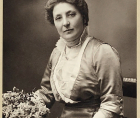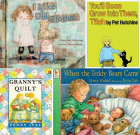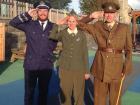Britain since 1930
A popular topic in the past has been Britain since 1930, which usually provides a focus upon World War II. It is possible to retain a study of World War II in Key Stage II provided that the unit of study either links to the locality, or shows how this was a turning point and draws links to knowledge that children have already developed. In this section you will find podcasts, articles and resources to help you plan to teach World War II as a local study or turning point in history.
Sort by:
Date (Newest first) | Title A-Z
Show:
All |
Articles |
Podcasts |
Multipage Articles
-

A Significant Local Event: Carlisle floods
ArticleClick to view -

Earth heroes: Etta Lemon, ‘The Mother of Birds’
ArticleClick to view -

Dig for sustainability!
ArticleClick to view -

Exploring sustainability in the Early Years
ArticleClick to view -

Trees
ArticleClick to view -

Significant anniversaries: The Bristol Bus Boycott, 1963
ArticleClick to view -

World War II: breathing life into a local history enquiry
ArticleClick to view -

What do children think about the the royal family and the coronation of King Charles III?
ArticleClick to view -

The Coronation of King Charles III
ArticleClick to view -

The wheels (and horses…) on the bus
ArticleClick to view -

Significant anniversaries: the infamous Beeching Report 1963
ArticleClick to view -

Teaching about ‘these islands’ since 1066
ArticleClick to view -

What’s in your pocket, Peg?
ArticleClick to view -

Teaching about the German Occupation of Jersey through the Occupation Tapestry
ArticleClick to view -

Scheme of work: Significant historical events, people and places in their own locality
ArticleClick to view -

Using oral history in the classroom
Multipage ArticleClick to view -

The new King
ArticleClick to view -

Teaching about Remembrance Day in EYFS
ArticleClick to view -

50th anniversary of the UK’s first official Pride march: 1 July 2022
ArticleClick to view -

Pull-out posters: Primary History 90
ArticleClick to view

